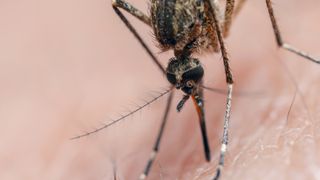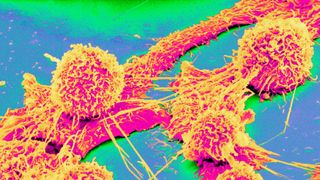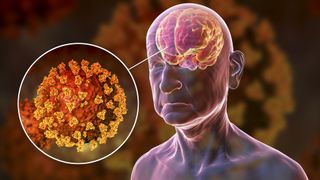Virus

A virus is defined as any of a various number of submicroscopic parasites that can infect any animal, plant or bacteria and often lead to very serious or even deadly diseases. A virus consists of a core of RNA or DNA, generally surrounded by a protein, lipid or glycoprotein coat, or some combination of the three. No virus can replicate without the help of a host cell, and though they can be spread, viruses lack the ability of self-reproduction and are not always considered to be living organisms in the regular sense.Some of the most common or best known viruses include the human immunodeficiency virus (HIV), which is the virus that causes AIDS, the herpes simplex virus, which causes cold sores, smallpox, multiple sclerosis, and the human papilloma virus, now believed to be a leading cause of cervical cancer in adult women. The common human cold is also caused by a virus.Since a great deal of mystery still surrounds the origins of most modern viruses, ways to cure these viruses and the diseases they cause are still in the very early stages of development.
Explore Viruses, Infections & Disease
Latest about Viruses, Infections & Disease

Deadly 'triple E' kills New Hampshire man — what is eastern equine encephalitis?
By Nicoletta Lanese published
Recent cases of a viral illness nicknamed "triple E" have occurred in New England. Here's what you should know about the disease.

Colon-cancer risk in young people linked to one amino acid, small study finds
By Emily Cooke published
A study has tied a substance in the blood to colorectal cancer in people under age 50. It may act as an early signal of the disease, scientists say, but that needs to be confirmed.

Listeria outbreak tied to sliced deli meat hospitalizes 57, kills 9
By Emily Cooke published
Listeria infections tied to the consumption of sliced deli meat have recently hospitalized almost 60 Americans.

What to know about Oropouche virus — the deadly fever that has reached the U.S.
By Emily Cooke published
Cases of "sloth virus" have been reported in the U.S. and Europe for the first time. But what is it?

For C. diff, antibiotic resistance comes at a cost
By Michael Schubert published
Researchers have identified two distinct mechanisms of drug resistance in C. difficile, but its ability to withstand antibiotics comes with downsides for the bacteria.

Virus that causes COVID-19 uses a secret 'back door' to infect the brain
By Michael Schubert published
A mutation on the spike protein of the virus that causes COVID-19 could help it infect the brain by forcing it to use a cellular "back door."

Chlamydia may hide in the gut and cause repeated infections
By Emily Cooke published
A mini model of the human intestines suggests that chlamydia bacteria can colonize the gut, potentially contributing to recurrent infections.

Single-shot HIV treatment suppresses virus 10,000-fold for months, animal study finds
By Michael Schubert published
Engineered virus-like particles can outcompete HIV in the body, potentially offering long-term viral suppression after a single dose, a monkey study suggests.
Sign up for the Live Science daily newsletter now
Get the world’s most fascinating discoveries delivered straight to your inbox.


